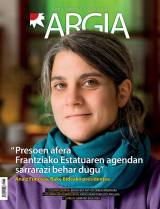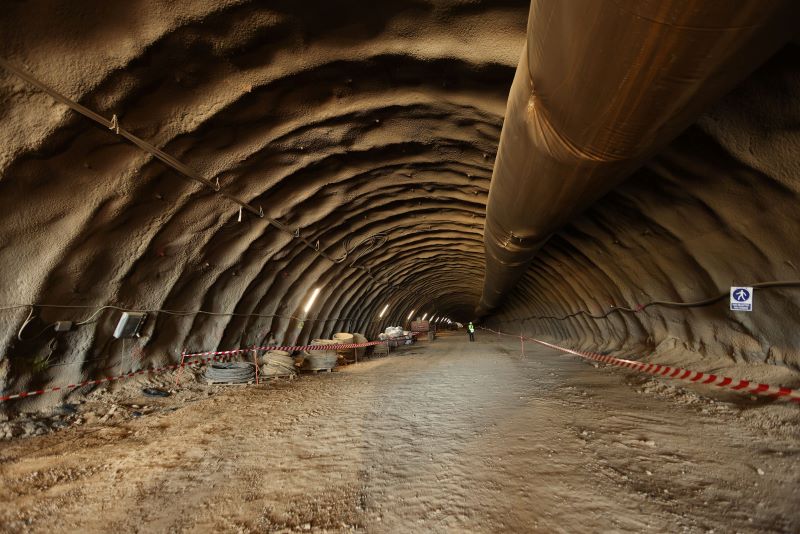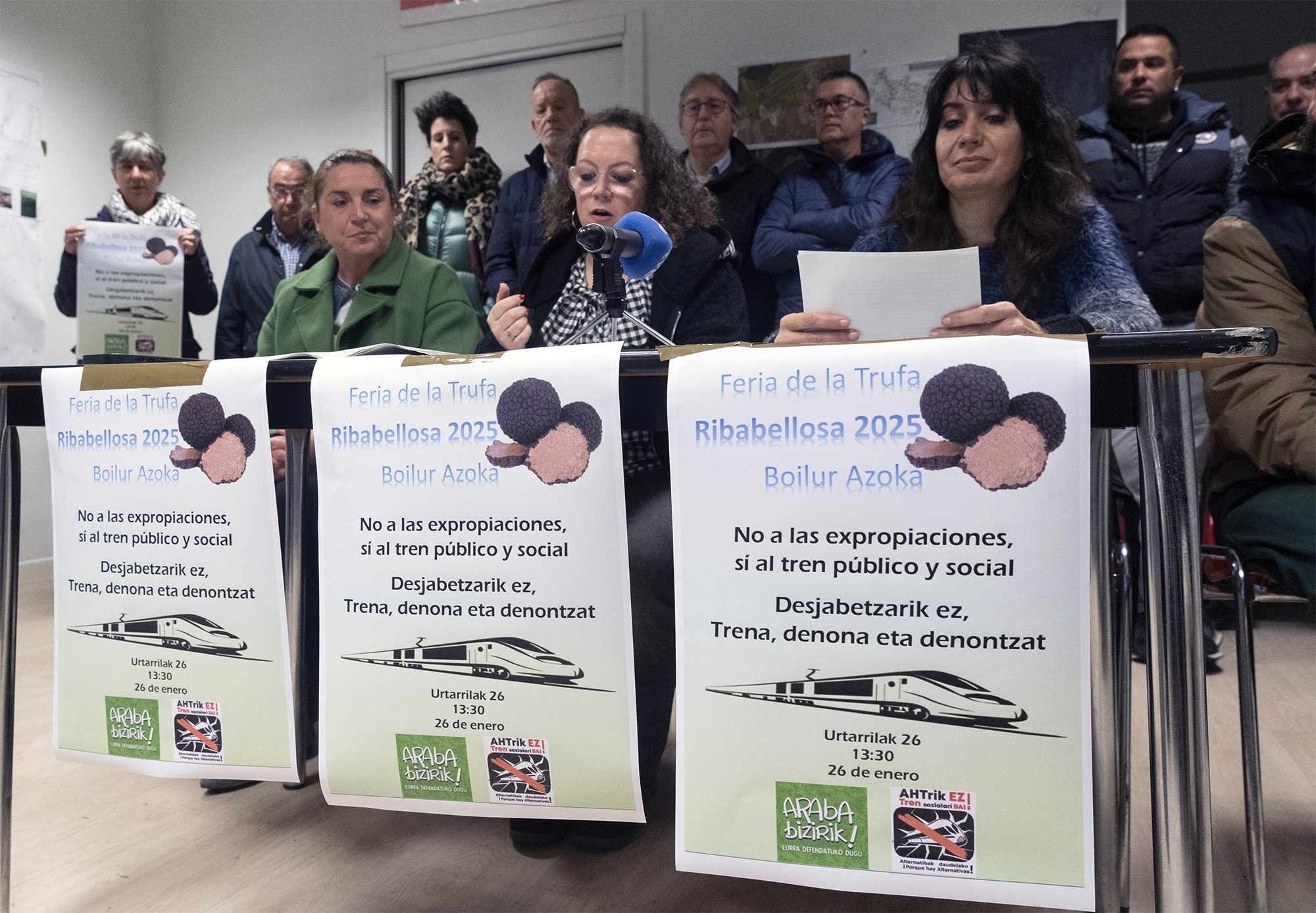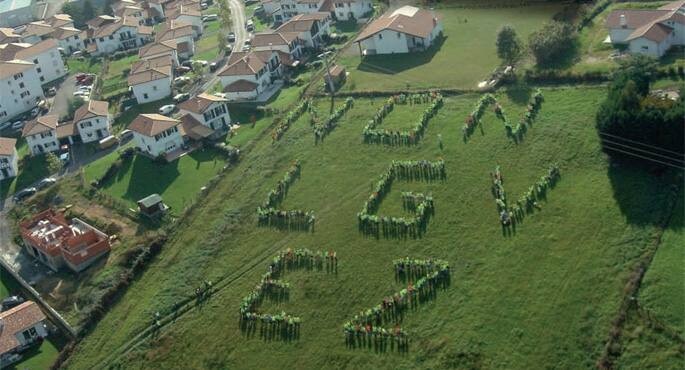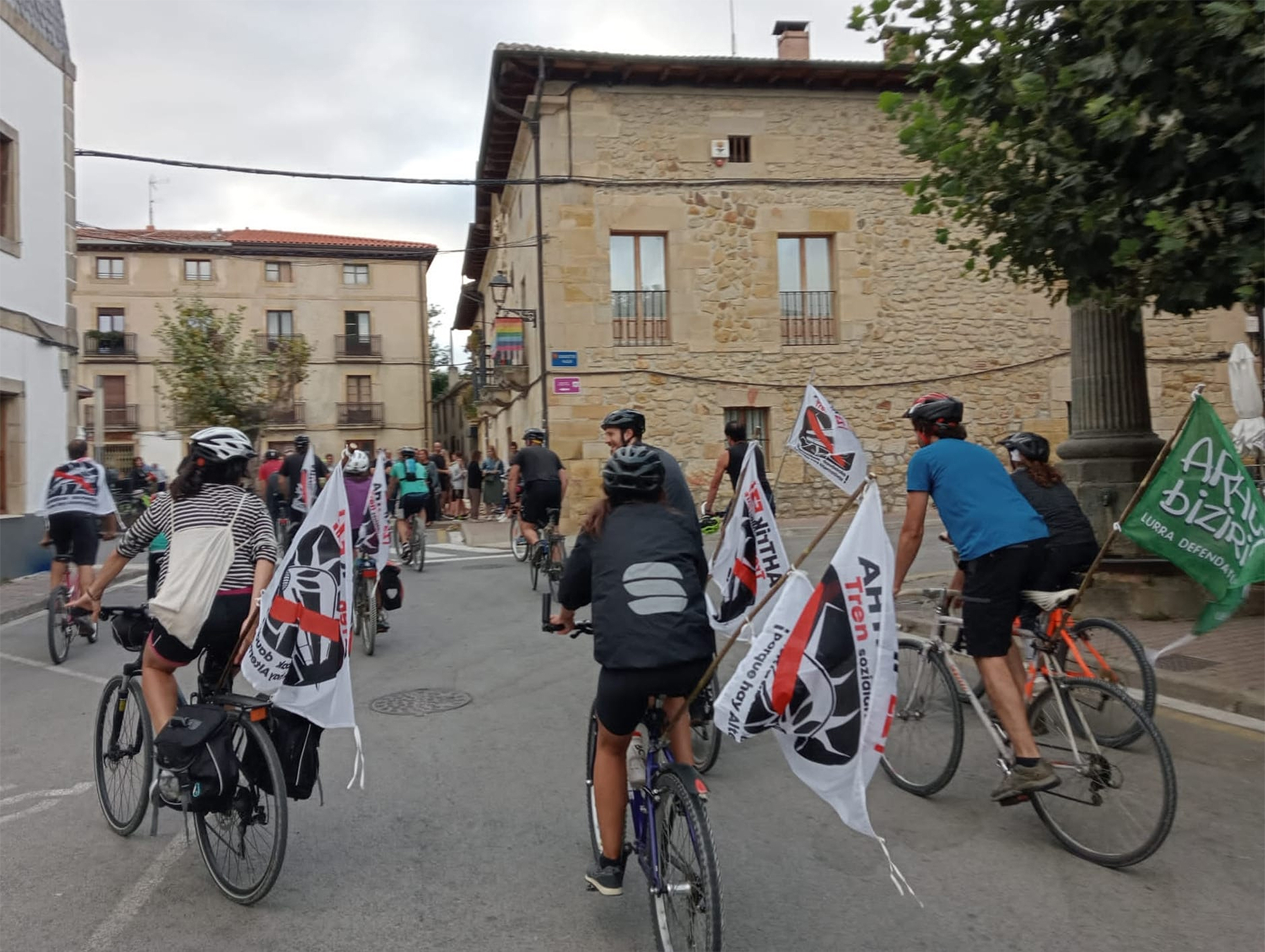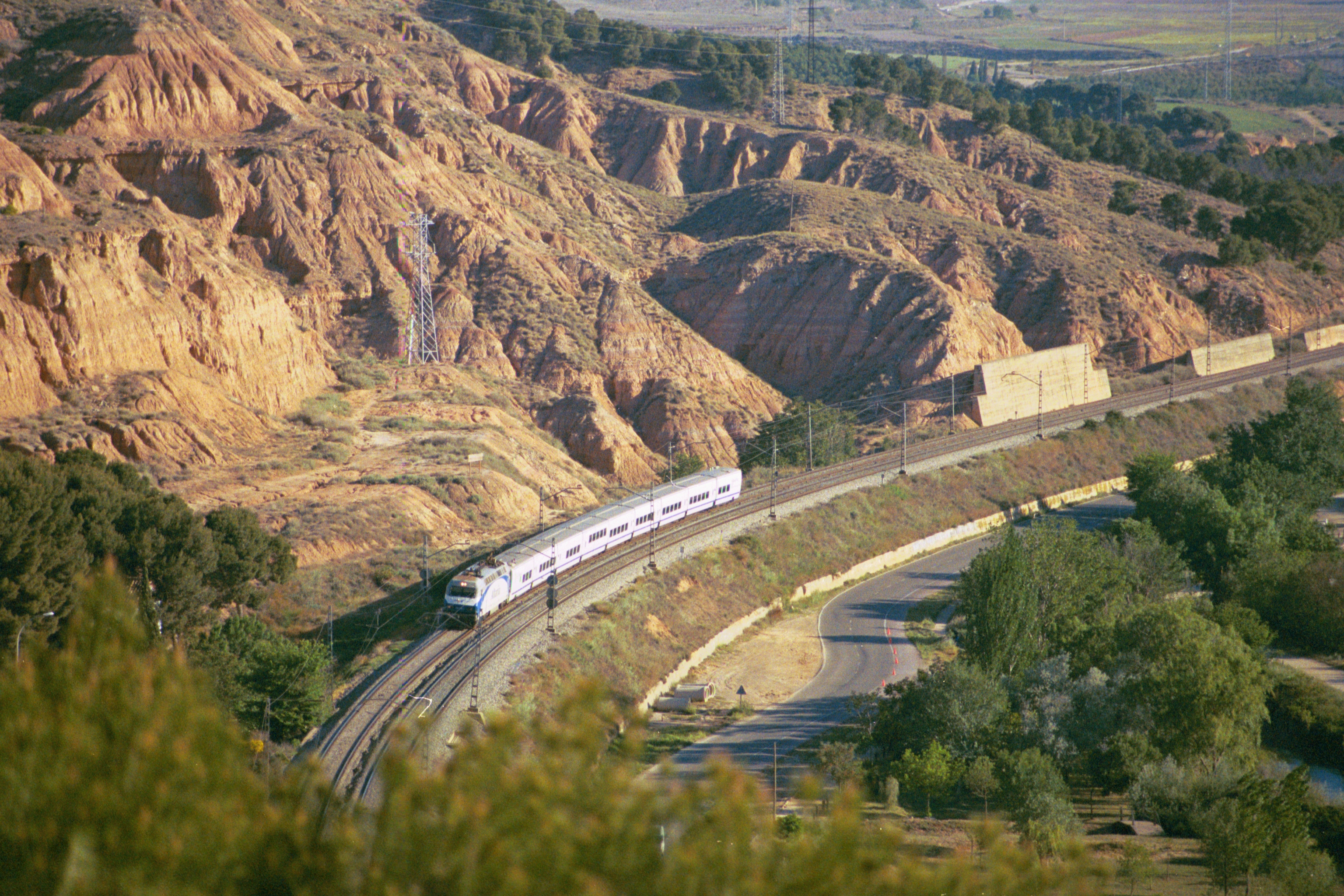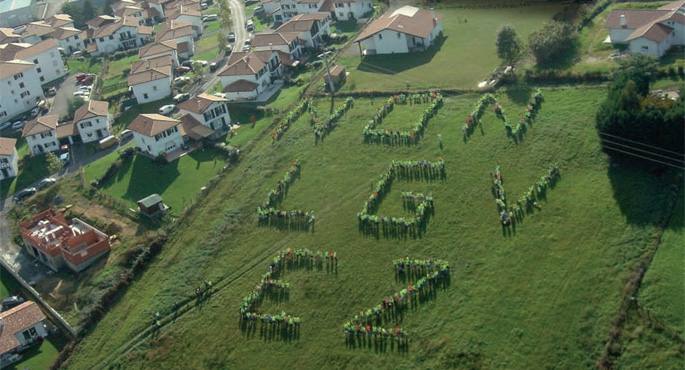"If you touch the right key, in an office someone is shaking."
- After Manu Robles-Aranguiz collaborated with ARGIA, it all started when Urko Apaolaza went to the ELA office and passed the pink folder: “As soon as I saw it, I realized we had a great treasure.” The documentation work adds to the displacements to the works of the TAV and in one year the book Zuloan, written in fango, is in his hands.

With a complicated syndicalist, with Igor San José, head of ELA construction in Gipuzkoa, you put on the helmet, the yellow duck and the boots and you put yourself in the works. How has the relationship been with the workers?
St. Joseph is accustomed to the peculiar language of the works. Even when the employer called him on the phone, his voice was rising immediately and he was noticing that he was negotiating. I have been based on the work he has done for years and is one of the great protagonists of this book.
"The relationship with the workers has gone through phases: at first they tell you quite alone their day to day. The second phase is fear. Finally, they gain the awareness of having entered into a struggle"
For me, it was not easy to access the underworld of workers at first. The relationship has gone through phases: at first they don't know exactly what it's going to and they start talking, they tell you quite loose their day to day, their complaints... The second phase is that of fear: employers learn about our work and the manager comes to say something, and the workers fear that they will. In that fear, I had to live a delightful moment. San José tells them one day that “this cannot be so, by agreement this is up to them, I will take the case to the Labor Relations Council... here I leave my phone, who takes care of it?” and at that moment a worker does it: “Bring it here!” It's a big step when you start to face it. So the workers overcome barriers and in the next visits you see that they are much calmer, as the entrepreneurs know what there is, the unions too, and the worker feels that “they will not touch me”, many affiliate the union and perceive another support... They become aware of their meddling in a struggle. Of course, there is a great deal to go on a strike.
A smooth hand worker gets into the hole that you have called “slavery” more than once... What about the work of the TAV?
"Because workers come from outside, they don't have a safety net here. They have a great weakness and companies take advantage of it"
It's very hard. In the warm suns you go container out when a cigarette is burned during the rest, but when it rains or it is cold it becomes very difficult to be there. In addition, they spend many hours in heavy work. And because they come from outside, they don't have a protective net here. If something happens to us, we go to family, to friends, to the union, to the mayor... Companies take advantage of their weakness to accept their words silently. It is a law of the jungle, workers have a lot of disinformation about conventions.
“They don’t have a job in their village, and for them it’s a lot 1,200 euros” what we hear over and over in the bar...
The wage bill is scandalous. They charge between EUR 5 and 6 per hour. They do not charge all the hours introduced, and this fee includes overtime, holidays, diets, everything. According to the convention, they would have to pay twice as much, and the extra a lot more, the holidays -- every day they enter 10-11 hours a day. The Staff Regulations provide for 170 hours per month to be introduced, all with a load of more than 200 hours per month. With these piles of hours they can collect 1,200 euros, but in the quote there is a puppy...
"The wage bill is scandalous. They charge between 5 and 6 euros per hour and in this rate come overtime, holidays, diets, everything"
The easiest thing is to make that comment from the bar, the usual one, “which is better than nothing.” This is exploited by the situation of some, who are exiled from work. Is it good enough for you to leave your country? But under what conditions? And they have no choice, to obey quietly what the manager has told him. And the most serious thing is that it is a public work!
Precisely because it is a public work, how does inspection permit non-compliance with the labour agreement?
The union is in charge of carrying out the inspection and that has neither feet nor heads. The inspection is in charge of ensuring compliance with workers' rights and does not guarantee at least in the cases we have analyzed: the deadlines are greatly extended, or do not respond, when you reply not completely... Think that the audit becomes more rigorous and obliges companies to comply with the convention, as all companies must comply in any other sector. Companies would get much more expensive and would need more time doing the TAV, I do not think that is the will of the Basque Government...
"The business has remained in the hands of a few and the economic benefit has also been important. In the case of VAT, it is very spectacular to whom it is awarded: 7 out of 10 has been for the big houses of Spain, so we have fallen the myth that enriches the companies here"
The TAV also offers a current photograph of the construction sector.
TAV is a kind of paradigm, yes. The first companies had their own staff, and what they outsourced was very specialized work, which they didn't have the ability to do.
All this has been completely disfigured by the Temporary Business Associations (UTE). WEEE has become a way to distribute the cake. These large companies have eaten the market but have not increased their workforce, but have reduced it. You go to a site and you'll find two workers from the company Moyua, two others from Amenabar... coordinate but the human capital is put by the subcontractors, bringing people from outside. The UTE puts a price on the whole work and is normally awarded to the cheapest, and then the UTE subcontracts the work, so we can say that they are private awards underlying public awards, which are hidden. And they're closing a bunch of small construction companies in Euskal Herria, who can't compete in that game.
They have precarized the working conditions of all, and the worker has only to go under those conditions or in another sector. The business has remained in the hands of a few and the economic benefit too. In the case of VAT, it is very spectacular to whom it is awarded: The 7 out of 10 has been for the large houses of Spain, so we have fallen down the myth that enriches local companies...
[Visible on the bottom infogram. Explanation in this blog post Zuloan]:
.jpg)
According to the book, he published in the blog Zuloan a case of labor exploitation and provoked an immediate reaction of the employer, improving the working conditions of the workers. Does a small media outlet in Basque influence more than they want us to believe?
"We have generated positive reactions, a case published on the blog that has led the company to commit to comply with the agreement. But it also bears responsibility, because the opposite has happened. Every movement we've made has had a reaction."
From the very beginning, notes that the employer is looking at, attentive. If the right key sounds, in an office someone is shaking. They don't like to see a union and a media together. In addition, these companies are very accustomed to acting according to the agenda of large Castilian speaking newspapers. There comes a small media and Euskaldun, who don't understand it, who have to give back to them, and they feel more lost.
We have generated positive reactions, the company committed itself to comply with the convention. But it also gives responsibility, because the opposite has happened, they have gone to look for the workers who have turned their faces on another of the reports we have published. Every movement we've made has had a reaction.
What would you like me to do this job?
I'd like people through this book to see what's behind a work of these characteristics and reflect on what we're doing. The TAV has become one of the largest factories in Euskal Herria, based on total labor exploitation, and has risen very little
We have a voice against it, because 80 percent of the workers are foreigners. Here will be the work, we and our grandchildren and our great-grandchildren and our great-grandchildren... that those who live a century from now on find out how this train was built, which was not built with the latest cutting-edge techniques, but poured out blood and sweat from foreign workers.

Author: Urko Apaolaza Ávila.
Edit: Manu Robles-Arangiz and ARGIA.
Layout and printing: Apparently.
168 pages.
Price: EUR 14.
Free license.
To return home: in the shop argia.eus and in their usual bookstores.
At the Durango Fair: Urko Apaolaza will be at the ARGIA table on 6 and 7 December. You can talk to him about the book or the theme.
Follow-up to the topic: In the blog Zuloan.
In recent weeks we have been reading "proposals" for the recovery of the railway line Castec-Soria and the maintenance of the Tudela train station in its current location, or for the construction of a new high-speed station outside the urban area with the excuse of the supposed... [+]
We have been with the "summer snake" over the TAV for a few weeks and with the possibility of linking the "Basque Y" from Pamplona, from Ezkio or Vitoria.
It is disappointing to see that our People continue to depend on decisions concerned and not supported by the galgos and... [+]









